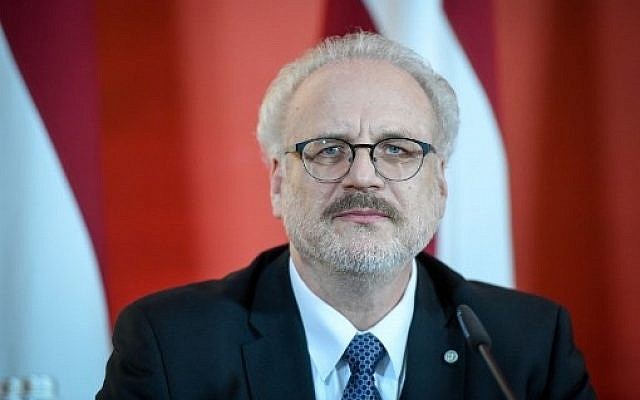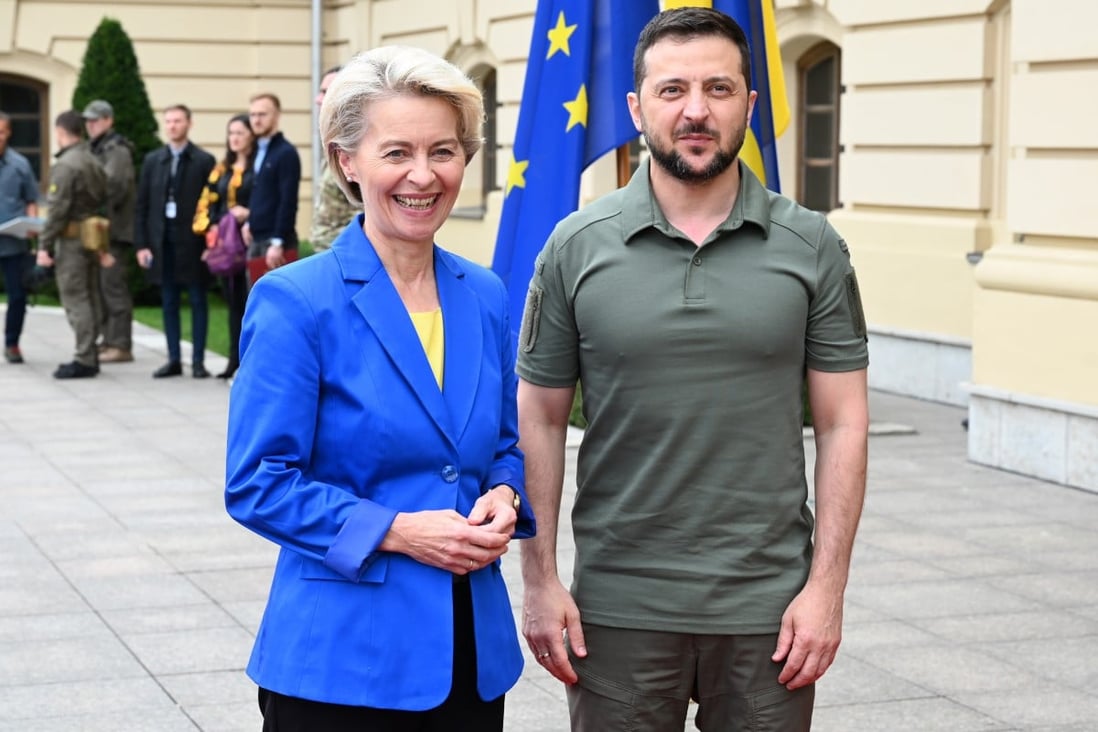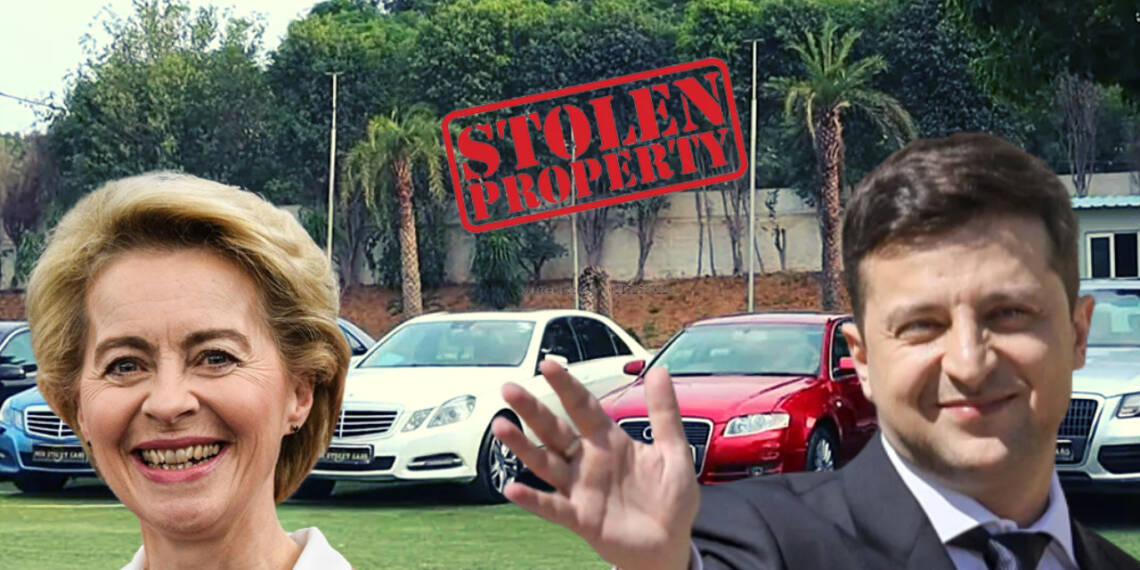European allies are assisting Zelensky, but with a twist: purloined cars are being transferred to Ukraine. How? Let’s find out.
European members of the NATO alliance have come out as Ukraine’s biggest defender amidst the war with Russia. NATO, as an alliance, has been clear in its political support to Ukraine and fully supports the provision of bilateral military assistance by individual allies. The alliance is helping to coordinate requests for assistance from the Ukrainian government and is supporting the delivery of humanitarian and non-lethal aid.
Ukraine is not a NATO member, and therefore isn’t party to NATO’s mutual defense clause under Article V of the North Atlantic Treaty. Yet, the European allies have never backed off from aiding Ukraine. Despite the fact that extensive aid has taken an extensive toll on European economies.
In 2022, Europe struggled to contain an energy crisis fearing potential blackouts, shutting down factories, and a deep recession. Russia slashed all of the continent’s access to the cheap natural gas that was previously used to run factories, produce electricity, and heat homes. To add insult to injury, now bankruptcies in the EU have increased tremendously.

EU’s assistance to Ukraine is sacrificial, you see. Countless European lives have been impacted owing to the fact they are bearing the brunt of high cost of living. Now, EU appears to be delivering something really weird to Ukraine, civilian cars impounded in other European countries.
Latvia reveals the secret
In the US, cars are frequently seized for offenses ranging from parking illegally to committing crimes. The majority of the time, these cars are impounded before being claimed or sold at auction. Such procedures are also enforced in almost every nation.
But Latvia has come up with a really weird strategy. Reportedly, the Latvian government is forcing the seized vehicles into war service and transferring them to the Ukrainian army rather than selling them. Under a new initiative intended to support the war effort in Ukraine, vehicles seized from drunk drivers in Latvia are being transferred to Ukraine.
On 8th March, eight seized vehicles moved out from Capital Riga and crossed the border to eventually land up in Ukraine.
The transfer of state-owned vehicles to the Ukrainian military and hospitals was approved by MPs. Late last year, Latvia changed the law so that the government could seize and sell the vehicles of drivers who were found to be driving three times the legal limit.
If statistics are to be believed, the Latvian effort has delivered more than 1,200 vehicles till date to Ukraine. Now, Latvian authorities have promised to provide Ukraine with approximately two dozen cars a week from its seized inventory to support Zelensky’s war efforts.

Well, Latvia is merely a small part of the bigger domino. In a similar manner, hundreds of vehicles—all British—arrived in Ukraine exactly one year ago.
The Guardian reported in April 2022 that second-hand cars, pickup trucks, and minivans purchased in Britain and still sporting the familiar UK number plates were fighting on the front lines of the conflict in Ukraine.
The odd sight was due to a fighters’ fund started by Serhiy Prytula, a 40-year-old Ukrainian actor and comedian who rose to fame with the sketch show Faina Yukraina (Nice Ukraine), which is modeled after Little Britain, but who now serves as an alternative quartermaster to the Ukrainian armed forces.
Ukrainian actors purchased these cars because British vehicles are attractively priced, roughly half the cost of their equivalent makes in mainland Europe, as right-hand cars are not in high demand internationally.
Not only this, there are also several videos on social media that demonstrate that even stolen cars from Europe are somehow landing on the Ukrainian battlefront. For instance, a YouTube video posted on July 8, 2022 featured two cars belonging to Dutch and French citizens in Ukraine. It still remains unknown what brought them to Ukraine.
Read More: SVB bankruptcy: The Global Financial Crisis 2.0
The war effort
But more than that, there is one more superior question, why exactly are these cars arriving in Ukraine? There are many possibilities, but the answer is definitely not so tricky.
The use of civilian cars in war is not uncommon, as they provide a readily available means of transportation for military personnel and supplies. In some cases, these cars are commandeered by military forces to be used for strategic purposes. Civilian cars act as a good camouflage.
For instance, the British army used American civilian cars for similar purposes while the German army used French civilian cars during World War II to transport troops and supplies. Public transportation has been used in many different ways during more recent conflicts. The Taliban has transported weapons and explosives in Afghanistan using civilian vehicles, frequently disguising them as convoys of civilians to avoid detection.
These vehicles can also be armed with bombs to carry out special operations against enemies on a battlefront. The most recent Crimean bridge attack was also reportedly carried out by civilian vehicles.
Reportedly, two men were driving a truck across the bridge with explosives which led to the collapse of bridge.

Read More: A BRICSy Middle East! Raisi and MBS join forces leaving Biden out of the equation
Ukraine: Benefits of European allies
More attacks on the Russian and Ukrainian armies have been conducted using civilian vehicles. Now, Europe is sending impounded cars to a dangerous conflict zone. The potential benefits of this move are pretty clear.
Consider this: Ukraine receives the vehicles needed to conduct attacks against the Russian army, and in exchange, Europe receives the vacant space needed to completely transform its auto industry with EVs.
It is no secret that the EU is putting in a lot of effort, into making the transition from combustible to electric engines as soon as possible.

According to regulations that have already been approved by the European Parliament and are generally supported by member countries, the sale of new combustion-engine cars and vans must cease by the year 2035. The Commission is prepared to put forth a legal declaration that would tighten up the non-binding language in the agreed-upon 2035 car and van CO2 standards text and create a loophole for e-fuels.
Read More: Ukraine is building wind turbines for Russia
It appears, that the impounded, stolen, and second-hand vehicles are being transferred to Ukraine on purpose. First, to create a void for EVs, and fill the empty and hungry population of the EU with a new option.
This is a multi-faceted deal between EU-Ukraine that is somehow fulfilling the wishes of all parties involved. However, again, the only one to suffer in this ploy are Europeans who appear to be losing their cars on daily basis.







